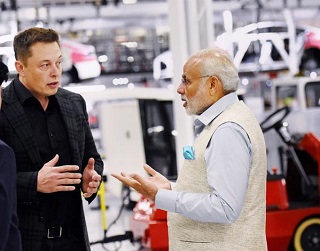From Guest Blogger Bobbi Peterson: Four Benefits of Recycling in the Manufacturing Industry

1. Significant Cost Savings
Recycling can save your facility a significant amount of money. Excess waste materials need to be disposed of properly, which usually means having trash hauled offsite. As you reduce the amount of trash you produce, you’ll also lower your costs since you’ll have less waste to remove from your site.
Some recycling facilities pay for scrap metal and other materials such as steel, aluminum, ink cartridges and old electronics. Rather than throw these items in the trash, cash them in for extra savings. It’s also essential for the environment to properly dispose of these products to prevent water and soil contamination.
Repurposed materials can be less expensive than virgin material, which can save your organization money over time. Not only will you save money, but you’ll be helping the environment by growing the demand for repurposed products.
2. Sustainable Reputation
Reutilizing materials will build your organization’s reputation as a green company. In turn, consumers with a similar mindset will want to use your products. Over time, you’ll build your factory’s reputation as a facility that’s committed to sustainable, eco-friendly practices while growing a base of loyal consumers.
Recyclable materials can extend beyond the manufacturing process itself and be used in your facility to maximize your environmental impact. Consider using environmentally friendly building materials for construction or repairs, such as a metal roof.
Not only are metal roofs 100% recyclable at the end of their lifespan, but they can also reduce energy costs by up to 20%. Additionally, they have long-range durability and hold up well in rough environmental conditions, such as hail storms and high winds.
3. Smaller Carbon Footprint
Repurposing materials will help slow the rate at which landfills are filling up and help lower the number of new landfills which are created. Landfills produce concentrated leachate which can lead to groundwater and soil contamination.
Landfills also generate greenhouse gas emissions as the waste breaks down and decomposes. Lowering the volume of products sent to landfills will decrease greenhouse gas emissions and help slow the rate of global climate change.
Does your facility use a high volume of raw material? Consider switching to recycled options. Recycled material reduced the amount of virgin product that needs to mined. Mining depletes the mineral content in soil and reduces the nutrient content of crops grown in that area.
4. Job Creation
Recycling is an involved process which requires skilled labor at all levels. Workers are needed at all stages from material transport to reselling. Experts estimate an increased focus on recycling can create up to 30 times the number of jobs compared to traditional waste disposal facilities.
By participating in recycling programs and using recycled materials, your facility can help grow the demand for recycling programs and improve the local economy by promoting job growth. Over time, this can reduce the unemployment rate in your area.
5. Tax Incentives
The federal government offers tax incentives known as depreciation credits for the first year facilities use certain recycled equipment and recycled materials in the manufacturing process. They also offer energy credits for eco-friendly investments such as solar panels.
Half of the states offer tax incentives to promote recycling for businesses and factories as well. For example, Virginia allows factories to claim up to 10% of the cost of recycled equipment and machinery. These benefits can make purchasing used or recycled equipment an economically viable option.
Recycling can help reduce your carbon footprint and boost your reputation as an industry leader in taking a stand to protect the environment. You’ll also save money which directly affects your bottom line.
